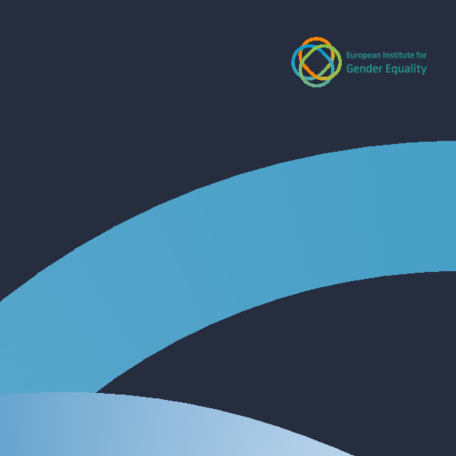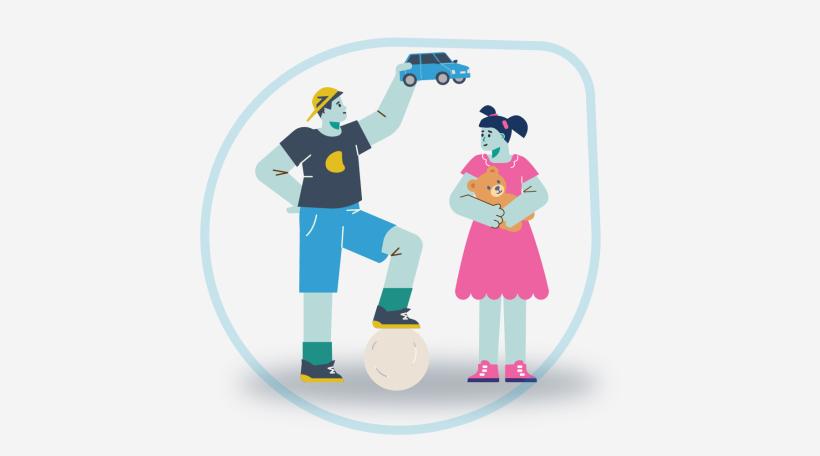EIGE's Director Carlien Scheele delivered this speech at European Parliement's Inter-Parliamentary Committee Meeting on 3 March 2022. The topic of the meeting was "An ambitious future for Europe's women after COVID-19: mental load, gender equality in teleworking and unpaid care work after the pandemic".
Good morning all,
Early last year, while we were in the depths of the second wave of the corona pandemic, the European Parliament called for the “right to disconnect” from work.
This is a good thing: telework during the pandemic often led to long hours and a blurring of boundaries between the home and the workplace.
Neither is good for work-life balance or mental health.
Yet there’s another kind of work that’s done at home. The type of work that does not contribute to someone’s career progression, nor to their pension pots. The type of work from which you can’t just disconnect.
I am of course talking about the work of raising children, of taking care of ageing parents, and of cooking three meals a day.
It is no secret that in every singly country in the EU, and I would venture to say in the world, women do the vast majority of this type of work.
During the pandemic, this type of work really exploded. Everyone was doing more: men as well as women.
However, our research shows that women still did the most.
On average, women across the EU have been doing some 36 hours of unpaid care work each week during the pandemic, which is almost 2,000 hours a year.
2,000 hours. To put that into context, that’s more or less what you give to a full-time job over the course of a year.
Women have quite literally been working a double shift since the Covid crisis began.
And even outside of crisis times, it is this extra work women are doing in the home that lies behind so many of the inequalities we just can’t seem to shift.
How much time women are able to give to their jobs, how often they are promoted, how much they earn and whether they are able to work at all, all this is linked to what is happening at home.
Indeed, the last time we measured, we found that 7.7 million women were unable to take up paid work because they were providing unpaid care at home.
7.7 million. That’s more than the entire populations of Denmark and Latvia combined!
Unfortunately, there are now some worrying signals that the Covid crisis may be pushing more women out of the job market than before.
In 2021, for the first time in 17 years, the number of economically inactive women increased. These are the women are not in paid work, nor looking for it. Before Covid, this figure had been dropping year on year in the EU.
So, how do we put a stop to these worsening inequalities between women and men? I will highlight four main points.
The first change we need is in the home. To give men the opportunity to care for their children right from day 1, governments should earmark healthy amounts of parental leave for all fathers.
In a number of EU Member States, this has been done via various ‘use it or lose it’ goodies that parents receive if they share leave. In Sweden, for example, the government offers a ‘father’s quota’ that gives an extra 90 days of leave to fathers. If they do not use it, the family loses both the leave and the financial benefits connected to it.
This policy has boosted the amount of time men spend looking after their children, and, in a virtuous cycle, normalised the idea of men as caregivers. Its success has inspired the EU to include it in its law on work-life balance, which all EU countries must now implement.
Let’s not forget that parental leave should also be a right for those working in so-called ‘non-standard’ forms of employment. This includes the growing rank of gig workers in Europe, many of whom are still classified as self-employed.
Government should enable parents to spend time with their children, and they should enable them to lead fulfilling lives outside the home. That is why the second point I will highlight is the need for affordable, professional care services.
These need to exist for children, as well as for older people, and those with disabilities. Many people in the EU provide care not just for their children, but also for ageing parents. The need for these kinds of facilities will only get bigger as our continent ages.
Yet currently, our care infrastructures are crumbling due to under-investment, as well as due to Covid.
Third, caring needs to stop being a professional and financial sacrifice. To do this, countries could make part-time and other flexible forms of work used by carers more secure through proper eligibility for social security. If both partners in a couple work reduced hours, the state could top up their salaries or pension contributions to ensure no one has to sacrifice their career or future financial security to provide care.
Last, we need to carefully manage the future of telework. As I’ve already mentioned, women were doing significantly more on the care front during the pandemic.
Of course, this was a particular case, with childcare facilities closed, grandparents unavailable, and home-schooling making the situation even more complicated.
But going forward, we must be careful not to allow telework to become dominated by mothers trying to care for children at the same time as doing their job, while fathers remain undisturbed in the office.
This would only widen all the inequalities we are already seeing in the workplace.
Instead, employers should create the conditions where all staff take advantage of flexible working arrangements in a way that allows for work-life balance. And if an organisation’s data shows that women mainly work from home while men mainly work from the office, this should immediately raise a red flag.
The home and the workplace have never been separate spaces. During the pandemic, this quite literally became the case.
So let us use what we have learnt during the crisis to make sure workplaces recognise the importance of unpaid care work – for individuals, as well as for our economies.
After all, this type of work has been estimated to bring some 9 trillion euros to the global economy each year.
Clearly, a critical part of the economy we should all have the opportunity to contribute to.
In order to make this a reality, EIGE will soon be launching a campaign to help the EU economy take ‘three steps forward’ for equality.
What do we mean by three steps forward?
Well, over recent years we have seen gender equality take one step forward, only to be followed by three steps back again during the pandemic.
As part of our campaign, we will be providing governments, businesses and individuals with the tools to reverse these losses, and to go even further, to take three steps forward, in order to finally achieve gender equality.
We hope you will join us.
Thank you.





